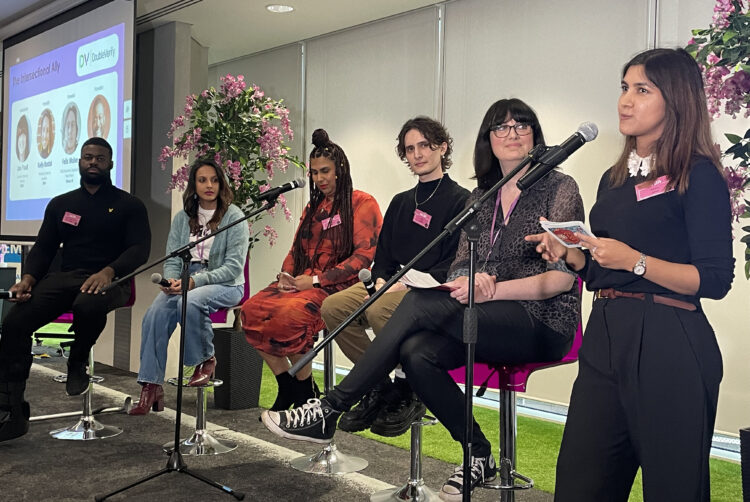|
Maria Iu
‘Be a sponge’: How to become an intersectional ally


Intersectionality was a key theme at Bloomfest, the annual event organised by women’s communications network Bloom, on Wednesday.
Being an intersectional ally is crucial today, as discussed during a session moderated by Digital Cinema Media business director Lou Youll.
Kelly Badal, planning director at TMW Unlimited and Bloom’s allyship and intersectionality lead, described an intersectional ally as “someone who actively seeks to understand people, advocates for them”, but not “through a single lens”.
Vice News LGBTQ correspondent Ben Hunte said it was about “stepping up” for others and “representing them when they’re not in the room”, adding: “Especially if you’re not getting anything for it.”
Indeed, both Badal and Felix Moise, DEI education specialist at GroupM, acknowledged that not everyone is afforded the same opportunities and options.
Against a backdrop of companies slashing diversity budgets and, according to Moise, employers “putting pressure on people to manage their own wellbeing”, being an intersectional ally is crucial.
This means being “honest about what you don’t know”, as Moise explained: “Ask questions, listen, let people speak.” Importantly, this also means “not being afraid to hear the answer”, Maya Tank, senior client partner at DoubleVerify, added.
As Hunte asked: “Are you willing to put in the work?” Because being an intersectional ally means having to “push things out of the way” for others.
On what action people can take in 2024, Moise challenged those in the room to note down a time they felt uncomfortable and, together with a friend, explore the reason behind it, as this helps to empathise with others.
Hunte said: “Step outside your own experiences, your knowledge — bring someone on your journey.”
Badal asked the audience to “be a sponge”, explaining: “Learn about privileges you have, things you can leverage for other people.”
It’s important to remember that “there is room at the table” for everyone to be represented, she said, with Tank adding: “You don’t know who in the room you’re impacting.”
